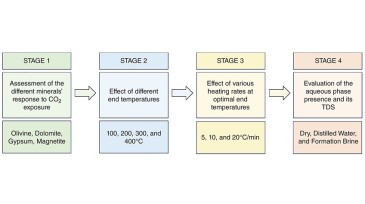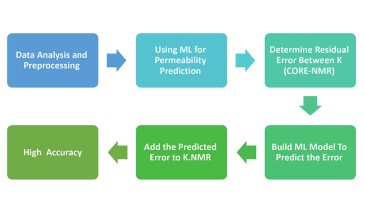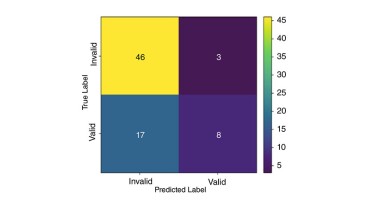Reservoir characterization
This paper compares deep transient testing with drillstem testing in a high- and low-permeability gas reservoir, including test-selection implications and best practices.
This study integrates recently developed formation testing with advanced petrophysical logging to address limitations of traditional methods in volcanic breccia formations.
This Technology Focus highlights three developments in formation evaluation related to measurement, interpretation, and integration.
-
This paper describes the implementation of a one-way wave equation in slowness domain outputting gathers up to Nyquist frequency, which can be used to generate high-resolution seismic sections and amplitude-vs.-offset studies.
-
This paper describes a novel 6.75-in. logging-while-drilling geochemical tool developed for accurate lithology, mineralogy, well-placement, and geosteering applications in complex reservoirs.
-
This paper presents a self-supervised approach for training a seismic foundation model and demonstrates scenarios in which it is used for seismic data conditioning, interpretation, and inversion through six real-use cases.
-
This paper provides an overview of an operator’s application of 4D time-lapse seismic technology over approximately a decade and includes future perspectives.
-
This paper describes rock-compressibility correlations for carbonated naturally fractured reservoirs in Mexico that considers a range of important geological and dynamic aspects.
-
Data and impartial viewpoints can help de-risk exploration portfolios and keep resource estimates in check.
-
Geophysicist Markos Sourial discusses advances in seismic imaging, the challenges of modern data processing, and what they mean for the next wave of subsurface professionals.
-
This paper presents a novel methodology for assessing the rapid mineral carbonation of carbon dioxide through geochemical interactions with carbon-, magnesium-, and iron-rich minerals abundant in geological formations.
-
This study integrates physics-based constraints into machine-learning models, thereby improving their predictive accuracy and robustness.
-
This paper introduces a machine-learning approach that integrates well-logging data to enhance depth selection, thereby increasing the likelihood of obtaining accurate and valuable formation-pressure results.
Page 1 of 30













